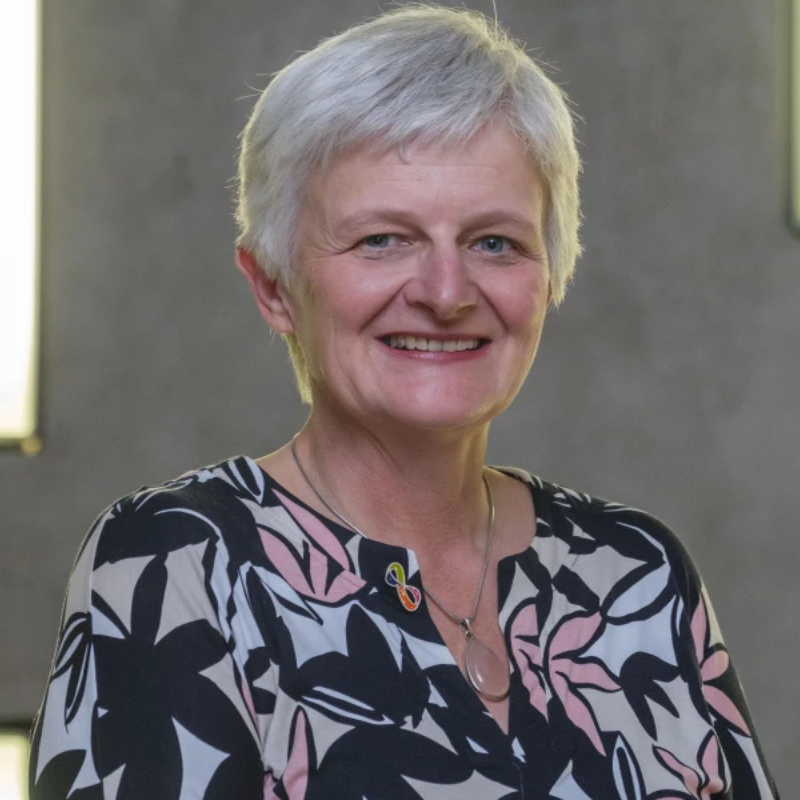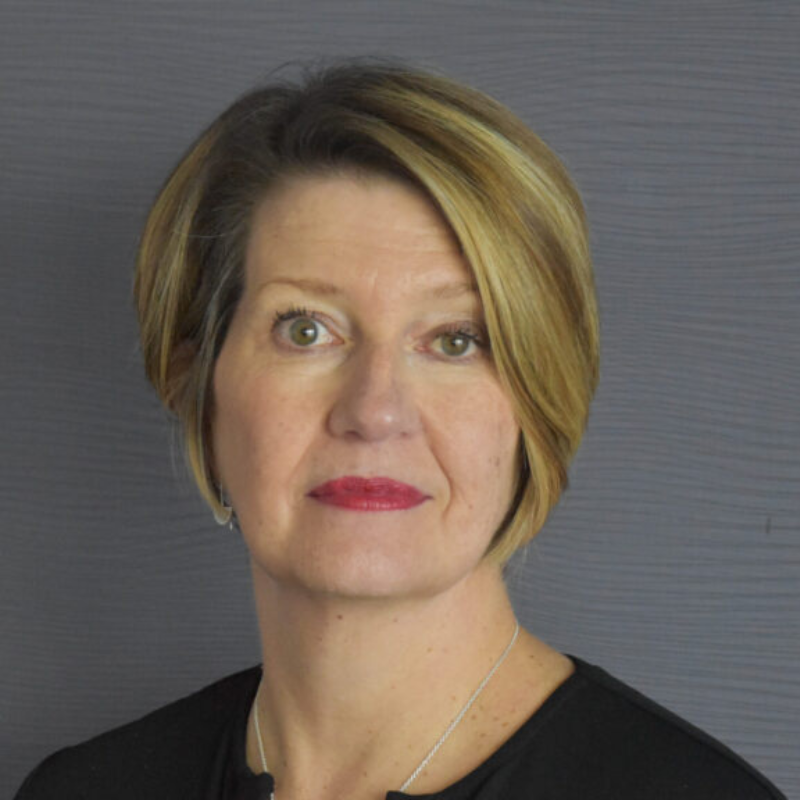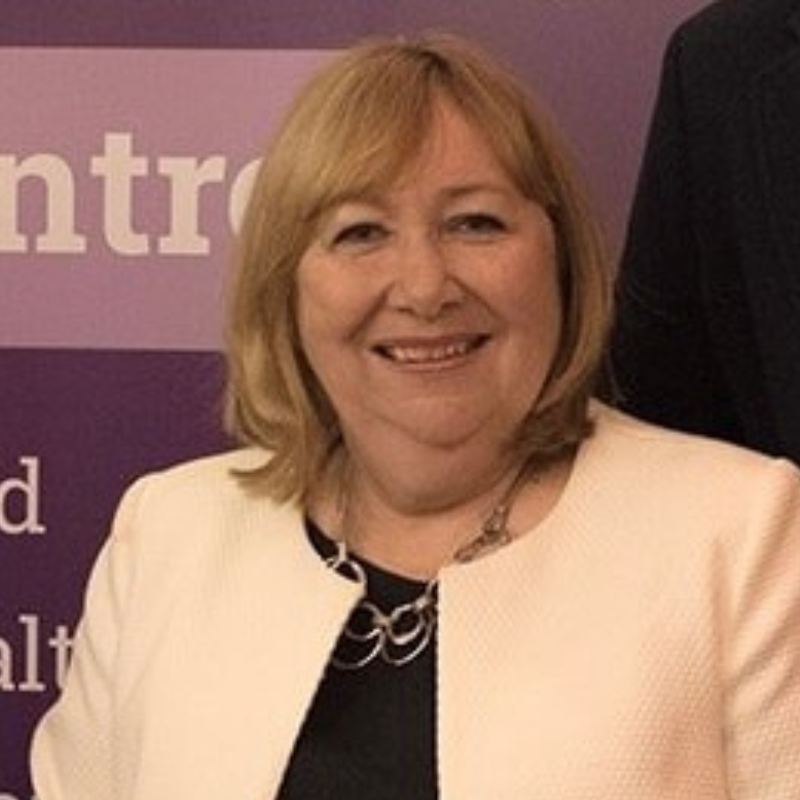Scotland's population is ageing, with 25% of all Scots now sixty or older, and that trend is only set to continue. However, care services for our older people face acute resource constraints at the same time as demand is rising sharply. Is it still possible to have quality, quantity and stability in our care services?
This conference – the 11th annual care of older people in Scotland conference – addresses the issues facing us now in care delivery for older people. Funding, staffing, regulation, care services and quality, policy and structures. These all need to work well and work together for older people care in Scotland to be available in the right places, in the right forms and at the right time. Yet the sector is constantly facing instability driven principally by funding uncertainty, staffing challenges and chronically weak long term planning.
We want everyone to have the best health and care possible in older age. However, we are getting older and living longer in larger numbers. This means the costs of care are rising remorselessly while at the same time our public finances are forcing tough decisions on funding cuts.
In January this year, IPPR Scotland and the Royal College of Physicians (Edinburgh) questioned how Scotland looks after its older people. They highlighted that delayed discharge from acute care remains a serious factor in both reducing quality of life for older people and chewing up health spending. In March, Age Scotland revealed that over 10,000 people were stuck on care waiting lists. Most of these were older people either waiting to be assessed for social care at home or waiting for a care package to be delivered. In May this year, the Alzheimer Scotland Commission on the Future of Long Term Care, led by former First Minister Henry McLeish, called for ministers to urgently transform Scotland’s “fragmented, crisis-prone” social care system to protect the human rights of older people. The crisis – and its breadth and depth – is not going away.
In this context, how should we fund care excellence? How can we best structure services and scrutiny? Which are the core elements of best practice that we should be trying to achieve in contemporary care of older people? Our agenda examines the care of older people in the context of the pre-existing sector crisis combined with further impending funding constraints. It asks how we empower older people and value the care workers supporting them. It considers whether we are looking after our older people properly. It is intended for all people and organisations involved in the care of older people in Scotland.
While health and social care spending on over 65s with at least one long-term condition is rising, is the efficiency of service provision for older people working well? Care delivery for older people takes place in a wide variety of settings. In hospitals and institutions delivering episodic care, older people tend to be admitted to acute settings, often for longer periods than medically required. Statistics show that older people living alone – often in accommodation unsuited to their care needs – is helping to drive the smaller households' trend. The challenge then is to deliver the right care, in the right setting with care givers who are well trained and well versed in best practice. We need to both meet future health and care demands and balance immediate needs with the challenge of a long-term preventative approach to older people’s health.
The conference explores where we stand in trying to secure the best care for older people. It discusses how we can deliver consistent and high quality care for our ageing population. Can we ensure best practice drives decision making? How do we prepare care services and workers to meet immediate needs while pursuing a long-term preventative approach to older people’s health?
The conference examines these challenges in three sessions:
Topics to be discussed
Who should attend
This conference will be relevant for anyone involved in the care and support of older people in Scotland in home, medical, residential, care and other settings. This includes:

Chief Executive
Coalition of Care and Support Providers in Scotland (CCPS)

Chief Executive
Age Scotland

Head of Workforce Policy and Planning
SSSC (Scottish Social Services Council)

Deputy CEO
Scottish Care

Chief Executive
Care Inspectorate

Director of Strategic Partnerships, External Affairs and Outreach
ALLIANCE (Health and Social Care Alliance Scotland)

Minister for Social Care, Mental Wellbeing and Sport
Scottish Government

Consultant Geriatrician and Clinical Director for Older People’s Services, NHS Ayrshire and Arran
and Specialty Advisor for Geriatric Medicine to the Chief Medical Officer in Scotland
09:25 Chair's opening remarks
Katherine Crawford, Chief Executive, Age Scotland
agescotland
Session 1: The strategic context for care of older people in Scotland
09:30 What is the state of care quality?
Dr Irene Oldfather, Director of Strategic Partnerships, External Affairs and Outreach, ALLIANCE (Health and Social Care Alliance Scotland)
ALLIANCEScot IreneOldfather
09:45 Question and answer session
09:55 Keynote speaker
Maree Todd MSP, Minister for Social Care, Mental Wellbeing and Sport, Scottish Government
scotgov scotgovhealth MareeToddMSP
10:10 Are we looking after our older people properly?
Dr Rowan Wallace, Consultant Geriatrician and Clinical Director for Older People’s Services, NHS Ayrshire and Arran and Specialty Advisor for Geriatric Medicine to the Chief Medical Officer in Scotland
NHSaaa rowan_wallace
10:25 Question and answer session
10:35 Comfort break
Session 2: What is the condition of regulation, provision and services?
10:55 What is the state of our regulation?
Jackie Irvine, Chief Executive, Care Inspectorate
CareInspect
11:10 Social Care Emergency: when is a crisis really a crisis, and what do we do about it?
Karen Hedge, Deputy CEO, Scottish Care
ScottishCare hegeit
11:25 Question and answer session
11:40 Comfort break
Session 3: Where do we stand on staffing, care quality and older people care strategy?
12:00 What is the state of our workforce?
Jess Elsey, Head of Workforce Policy and Planning, SSSC (Scottish Social Services Council)
SSSCnews
12:15 The National Care Service – where are we now?
Rachel Cackett, Chief Executive, Coalition of Care and Support Providers in Scotland (CCPS)
ccpscotland r_cackett
12:30 Question and answer session
12:45 Chair's closing remarks
Katherine Crawford, Chief Executive, Age Scotland
agescotland

Rachel Cackett
Chief Executive
Coalition of Care and Support Providers in Scotland (CCPS)
Rachel Cackett is the Chief Executive of CCPS. She joined CCPS from Samaritans where she had worked as Executive Director for Scotland since January 2020. At Samaritans she worked with volunteers, staff, partners and people with lived experience to build the charity’s Scottish presence, secure a new self-harm strategy, and shape recommendations for suicidal crisis support.
Prior to joining Samaritans, Rachel worked in the Scottish health and care sector for 20 years with campaign and policy roles at Shelter, RVS and the RCN, where she led the organisation’s work on integration, NHS finance and safe staffing legislation.

Katherine Crawford
Chief Executive
Age Scotland
Katherine joined Age Scotland as Chief Executive Officer in July 2023, bringing 20 years of experience in the charity sector working with Parkinson’s UK. Katherine has seen first-hand the challenges older people can face through that work and it is seeing the impact of charities like ours that energises and inspires her.
Bringing experience of influencing and campaigning at the Scottish government, working with volunteers and colleagues in developing and delivering services to benefit people wherever they live, Katherine is keen to ensure every single older person in Scotland is confident that their voice is heard and knows that Age Scotland is here for them.
Living in Fife with her husband, she enjoys getting out to the beach with her lively re-homed Labrador and playing lots of social tennis. Katherine has one son, who is bouncing between home and college.

Jess Elsey
Head of Workforce Policy and Planning
SSSC (Scottish Social Services Council)
Jess Elsey is the Head of Workforce Policy and Planning at the Scottish Social Services Council (SSSC). She’s worked for the organisation for some time, in different roles, and currently provides strategic leadership for the Workforce Policy and Workforce Intelligence teams in the Workforce, Education and Standards directorate. The team supports workforce development and workforce planning activity across social work, social care and children and young people services and is an Official statistics provider of workforce data.
Prior to working at the SSSC, Jess was the training manager for a large third sector organisation that provided care, support and education for children, young people and adults. She is a member of the Chartered Institute for Personnel and Development, the professional body for HR and people development. Her particular interests are workforce wellbeing, leadership development, and quality improvement. In her spare time she likes spending time with her family and friends, making quilts, and she collects garden gnomes!

Karen Hedge
Deputy CEO
Scottish Care
Karen’s career in social care began as a paid carer and whilst hugely rewarding, she quickly became motivated by the pressures of the sector. A champion for participation and co-production, she believes in evidencing impact through outcomes for people.
Integration has been a theme of her career, having implemented the single shared assessment in an inner London Borough, and been one of the first people in the UK to have a joint funded NHS and Local Authority post, commissioning in Wiltshire. As Director of Finance, Governance and Compliance at the Prince of Wales Foundation in Washington DC, she held stewardship for a fundraising and grant-making non-profit, reporting directly to Clarence House.
As Deputy CEO of Scottish Care, she continues to shape the future of social care. Her portfolio includes reform, integration, commissioning and procurement and nursing in care. She particularly values the Scottish Care Awards where she learns of the successes of the sector and from those who effect change.
When she is not working, the ‘Ayrshire lass’ can be found on the beach with her family, letting the good sea breeze blow away the cobwebs. Her previous voluntary roles include Trustee for Milestones Trust, and Chair of the NCT Bath branch. She is currently on the committee of the Unfunded List, an international not-for-profit which supports unsuccessful fundraisers to meet their next bid, and is a Board member of Learning Network West, supporting social work education.

Jackie Irvine
Chief Executive
Care Inspectorate
Jackie qualified in Scotland before starting her career in London, moving back to Scotland in 1991.
Jackie has been a Chief Social Work Officer for over 10 years and came to the Care Inspectorate from her previous post as Service Director, Children and Families and Justice Services within the City of Edinburgh Council.
Jackie has over 30 years’ experience of working in the public sector and has also managed community health services for children.

Irene Oldfather (Dr)
Director of Strategic Partnerships, External Affairs and Outreach
ALLIANCE (Health and Social Care Alliance Scotland)
Irene represents the ALLIANCE on a range of national and Advisory bodies including the Health and Social Care Partners Group, the IHub Board, the Focus on Dementia Advisory Forum and Living Well in Communities Board.
As Scotland’s Third Sector representative on the European Economic and Social Committee (EESC) working across the ALLIANCE and third sector to ensure a strong voice for the Sector in this difficult and uncertain pre Brexit environment.
On a day to day basis Irene manages key areas of ALLIANCE activity such as Carer Voices, Sensory Impairment, Neurological Conditions, Our Voice and Self Management.
As a former MSP and Chair of the Scottish Parliament European and External Affairs Committee she maintains a keen interest in parliamentary activities.
Special interests:

Maree Todd MSP
Minister for Social Care, Mental Wellbeing and Sport
Scottish Government
Maree Todd grew up in the West Highlands, attending Ullapool High School and then studying pharmacy and prescribing at Robert Gordon's and Strathclyde, as well as taking an ante-natal teaching diploma at the University of Bedfordshire.
A pharmacist by profession, Maree Todd worked in NHS Highland for 20 years, mainly as a mental health pharmacist in a psychiatric hospital. She also contributed to SIGN guidance on perinatal mental health.
She was previously the Minister for Children and Young People, and was appointed as Minister for Social Care, Mental Wellbeing and Sport in March 2023.

Dr Rowan Wallace
Consultant Geriatrician and Clinical Director for Older People’s Services, NHS Ayrshire and Arran
and Specialty Advisor for Geriatric Medicine to the Chief Medical Officer in Scotland
Dr Rowan Wallace has been a Consultant in Older People’s Medicine in NHS Ayrshire and Arran since 2009. Her special interests are Hospital at Home, front door acute frailty and pre-operative assessment.
She was the Chair of British Geriatrics Scotland council from 2021-2023, and is the current Specialty Advisor in Geriatric Medicine to the Chief Medical Officer Scotland.
With her team in Ayrshire and Arran, she was awarded the Scottish Health Award for Integrated Care of Older People in 2014 for their work in establishing a ‘Frailty Team’ in the Emergency Department at University Hospital Crosshouse. This was the first time a team focussed on the acute needs of older people living with frailty was integrated into an acute hospital area.
This conference will take place online.
How to book
You can book to attend, or order the video only, in 3 ways:
Conference fees
GROUP DISCOUNT – organisations booking 3 or more delegates will receive every third delegate place free of charge (please complete further forms if necessary)
PLEASE NOTE – the option of ordering the video recording only is intended for any individual who would normally have attended the event but – for whatever reason – is unable to do so on the day. It is not permissible to share this recording. Please contact us if you wish to share this recording. See our terms and conditions for further information.
Payment
We do not currently accept payments online and will send you an invoice.
You have the option of paying by bank transfer or card.
Bank details will be included on the invoice.
If you wish to pay by card, please tick the appropriate box on the booking form and a member of our staff will contact you by telephone to take the payment. Alternatively you may call 0131 556 1500.
Terms and conditions
By placing this booking, you agree to the full terms and conditions found via the link at the foot of our website.
Book delegate places or purchase video recording.

